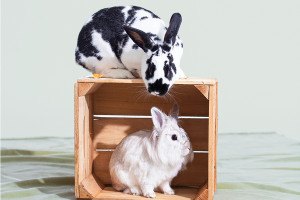What Your Coffee Says About You
In a world where you can find a Starbucks on almost every block (no joke: Three of the four corners surrounding Philly Mag’s building have been ’Bucksified) taking the road less traveled with a non-Starbucks cup in hand says something about you. I am anti-corporation, perhaps. Or maybe, I am a coffee snob. Or possibly, I am poor. But regardless, it does speak, says Bryant Simon, Temple prof and author of 2009’s Everything But the Coffee: Learning About America From Starbucks. Not long after the word “tall” became synonymous with “small,” he says, our coffee became shorthand for who we are.
The original status coffee made all coffee status coffee.
“Class used to be about wealth and name,” Simon says, perched at a small table at Rittenhouse’s La Colombe, sipping a dark blend from a painted china cup. “But now it’s about experience, knowledge. And that can be shown by coffee.”
There’s no menu at La Colombe, he points out, “So you have to know a little something just to order.” The logo on the window is relatively small, sedate. There’s no giant pastry case, but lots of gleaming coffee machines in plain view. All this, he says, means the La Colombe drinker sends a sophisticated message: I know my stuff.
If La Colombe, so focused on coffee bona fides, is the anti-Starbucks, then Wawa drinkers, too, send a message: I am anti-snob. “I just want the caffeine hit,” says a colleague, a no-frills type. “And the people in Wawa are more real and interesting than the people in Starbucks.” Ah — the coffee of the people.
So goes Simon’s coffeehouse sociology. A Mugshots fan? You probably value local business and fair-trade ethics. West Philly’s Lovers and Madmen? You’re a neighborhood enthusiast with passion for coffee. Even Starbucks lovers telegraph a message, Simon says: You value predictability and worldliness, and consider yourself a benevolent person.
One thing, though: Coffee culture is ephemeral. Today’s El Salvadorian blend might be tomorrow’s Frap with whip. Already, a few neighborhood places here that sell New York’s so-credentialed “single-origin” Stumptown are taking off, and Simon foresees the entree of a new breed of high-end shop: single-pour, five-minute brews, with $5 price tags.
Which may well broadcast, I really know my stuff. Or maybe, I am a sucker.


